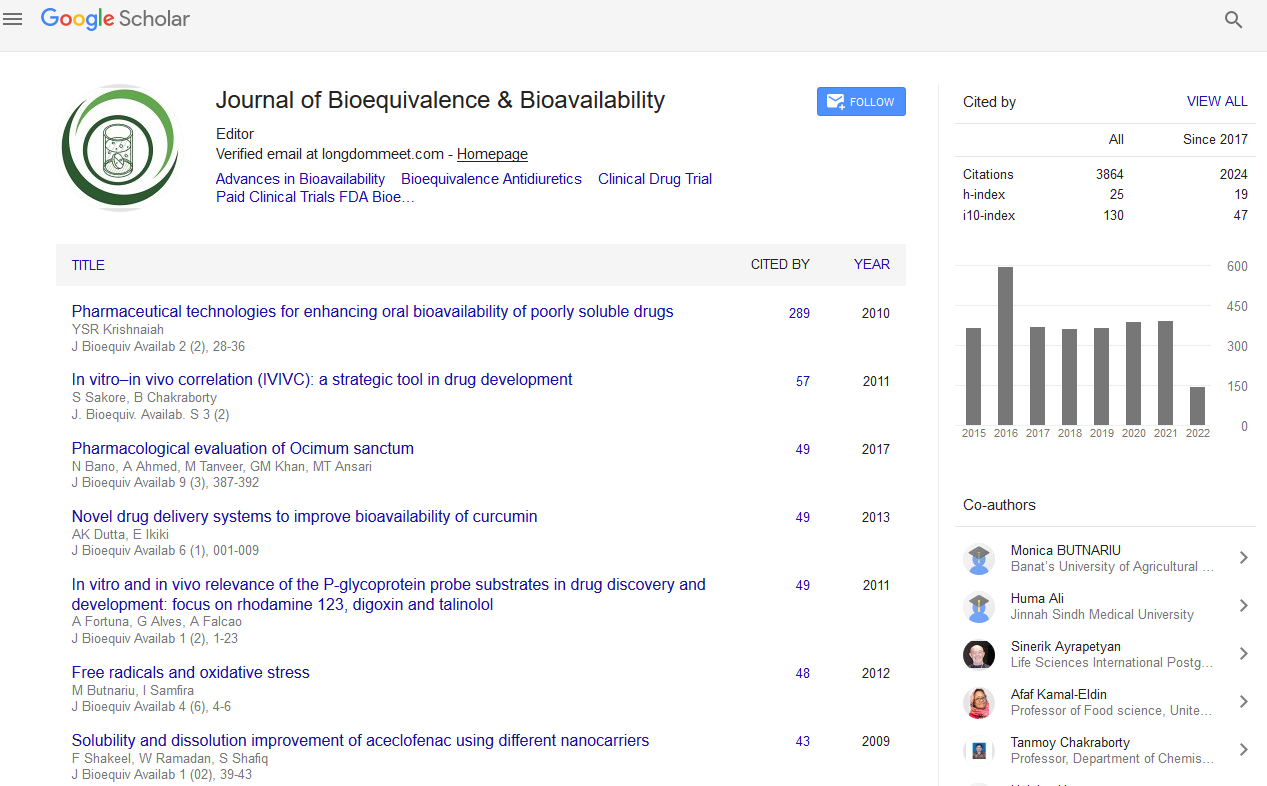PMC/PubMed Indexed Articles
Indexed In
- Academic Journals Database
- Open J Gate
- Genamics JournalSeek
- Academic Keys
- JournalTOCs
- China National Knowledge Infrastructure (CNKI)
- CiteFactor
- Scimago
- Ulrich's Periodicals Directory
- Electronic Journals Library
- RefSeek
- Hamdard University
- EBSCO A-Z
- OCLC- WorldCat
- SWB online catalog
- Virtual Library of Biology (vifabio)
- Publons
- MIAR
- University Grants Commission
- Geneva Foundation for Medical Education and Research
- Euro Pub
- Google Scholar
Useful Links
Share This Page
Journal Flyer

Open Access Journals
- Agri and Aquaculture
- Biochemistry
- Bioinformatics & Systems Biology
- Business & Management
- Chemistry
- Clinical Sciences
- Engineering
- Food & Nutrition
- General Science
- Genetics & Molecular Biology
- Immunology & Microbiology
- Medical Sciences
- Neuroscience & Psychology
- Nursing & Health Care
- Pharmaceutical Sciences
The Turkish oncology group efforts to validate the applicability of various chemotherapeutic doses and schedules in Turkish cancer patients
International Conference and Exhibiton on Pharmaceutical Regulatory Affairs
6-7 September 2011 Baltimore, USA
Nazim Serdar Turhal
Scientific Tracks Abstracts: JBB
Abstract:
T he cancer treatment protocols including the dosing and schedule, overwhelmingly determined by the phase I-III studies designed in the developed world. Th e pharmocogenomic diff erences in countries outside of the developed world may make these dosing and schedule intolerable or ineff ective. Toward this goal, several attempts made by the Turkish Oncology group to validate the applicability of various treatment protocols in Turkish cancer patients. Th ese include, but not limited to: 1. Th e overall tolerated cumulative anthracycline dose of 144 breast cancer patients studied and the relative dose intensity rate was found to be 0.876 (042-1.06) which was consistent with the western literature. 2. Th e sunitinib tolerability and eff ectiveness studied in 102 renal cell cancer patients and although the rest of the side eff ects and survival data were comparable, close to 30 % of patients developed hypothyroidism that required treatment, which was unexpectedly high. 3. Th e tolerance of standard adjuvant treatment in 190 colon cancer patients studied and of the 5-fl uorouracil (5-FU)-based chemotherapy group (n=141), 5% had a dose reduction because of toxicity and 73% were given the total planned dose and cycles, whereas these rates were 18.5 and 66% for oxaliplatin+5-FU treated group, respectively (p=0.66 and 0.44). 4. Th e 49 lung cancer patients treated with cisplatin based treatment studied for the toxicity and tolerance but a persistent toxicity or unexpectedly high intolerance is not observed. In conclusion, it is imperative for cancer specialists to study and report the treatment course of their own patients; develop management plans and allocate resources accordingly
Biography :
Dr Nazim Serdar Turhal trained in Hematology, Oncology and Bone Marrow Transplantation at Mount Sinai Hospital in New York and appointed at Marmara University in Istanbul as Professor of Medicine and Director of Oncology. He has 56 peer reviewed publications and over 350 citations to them. He is a member of ASCO, ESMO and fellow of ACP. He is the national representative of Turkey in Balkan Union of Oncology and also member of EORTC colorectal cancer task force. He is board certi fi ed in Medical Oncology by American Board of Internal Medicine and European School of Medical Oncology.


